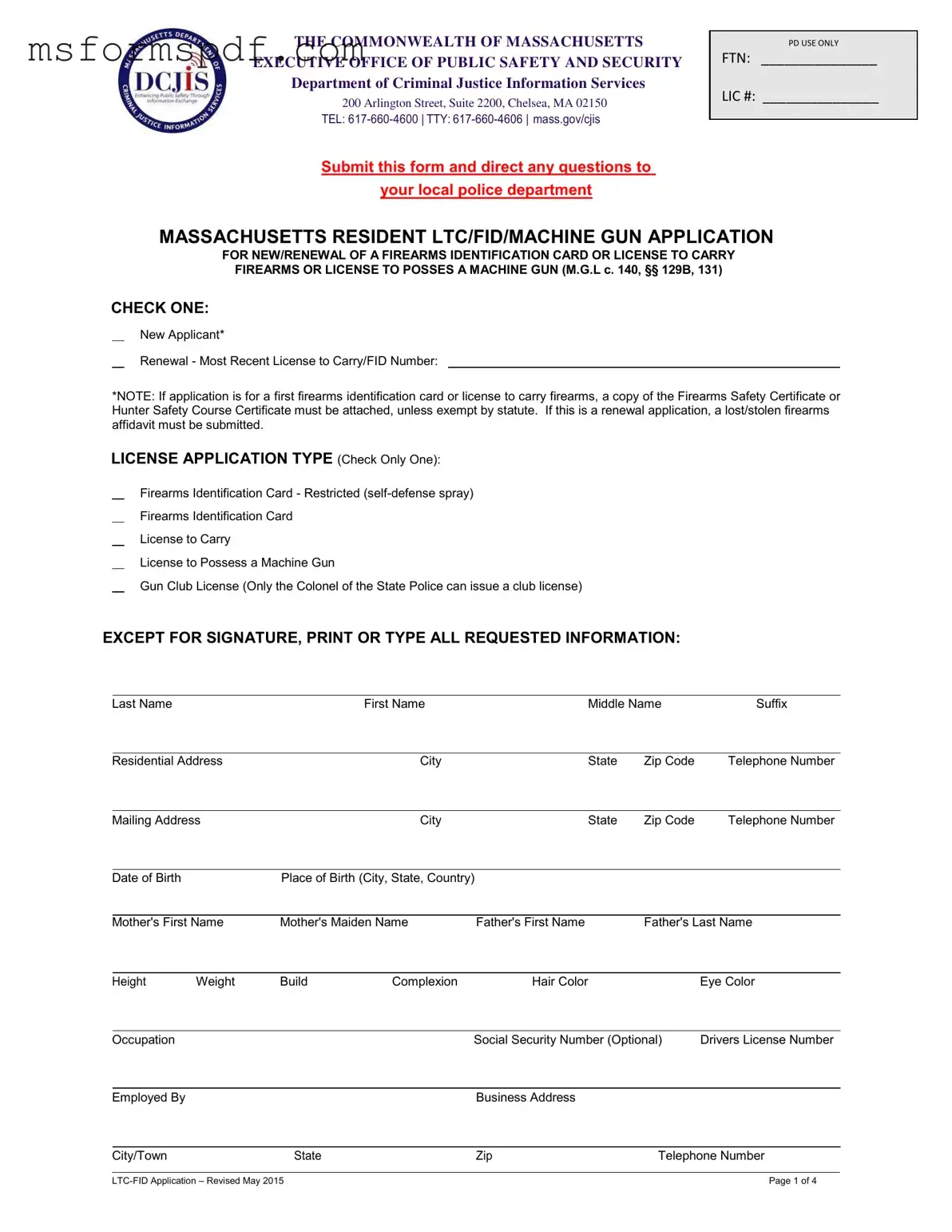Free Massachusetts Ltc Fid Template in PDF
The Massachusetts LTC Fid form is an application used to obtain or renew a Firearms Identification Card (FID) or a License to Carry (LTC) firearms in the state. This form requires personal information, background checks, and specific details about the applicant's eligibility. Completing this form accurately is essential for a smooth application process.
Launch Editor Now

Free Massachusetts Ltc Fid Template in PDF
Launch Editor Now

Launch Editor Now
or
➤ Massachusetts Ltc Fid PDF Form
Just a moment — finish the form
Fill out Massachusetts Ltc Fid digitally — no scanning, no printing.